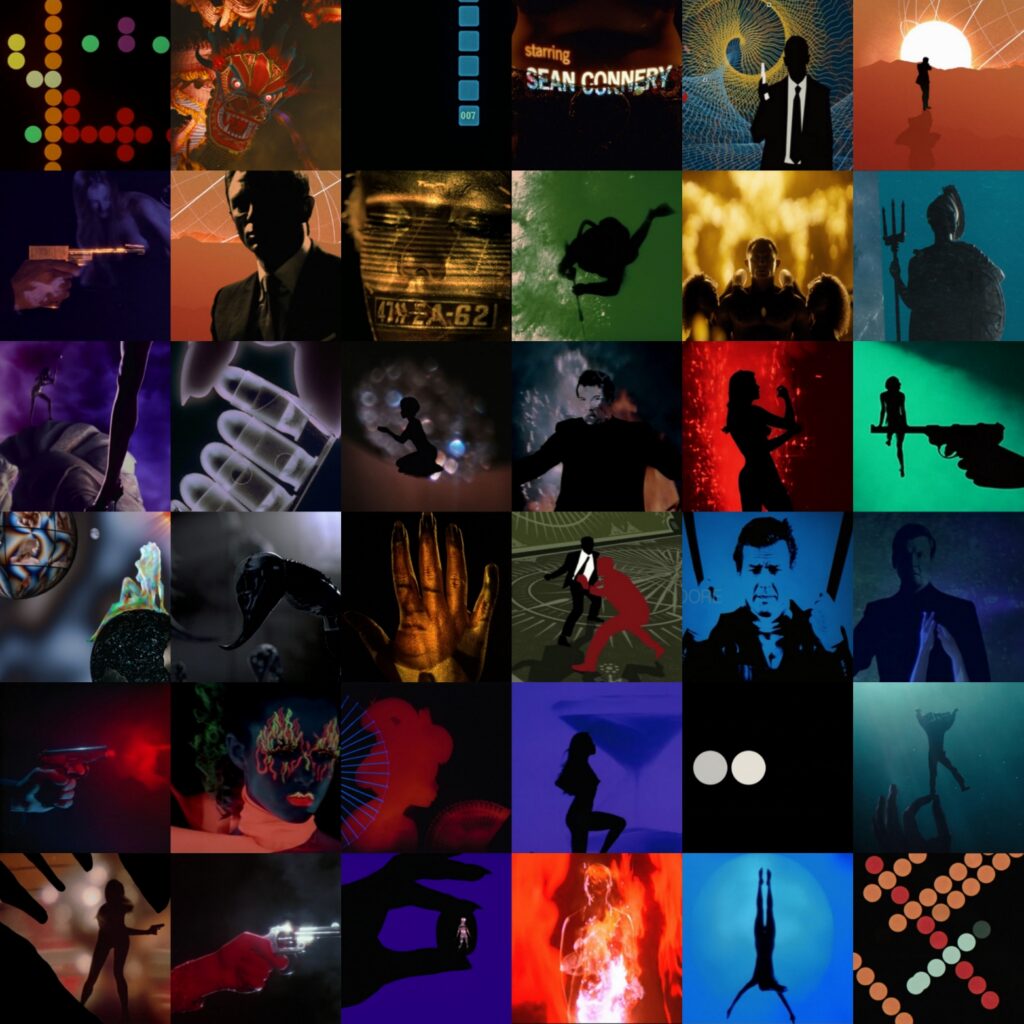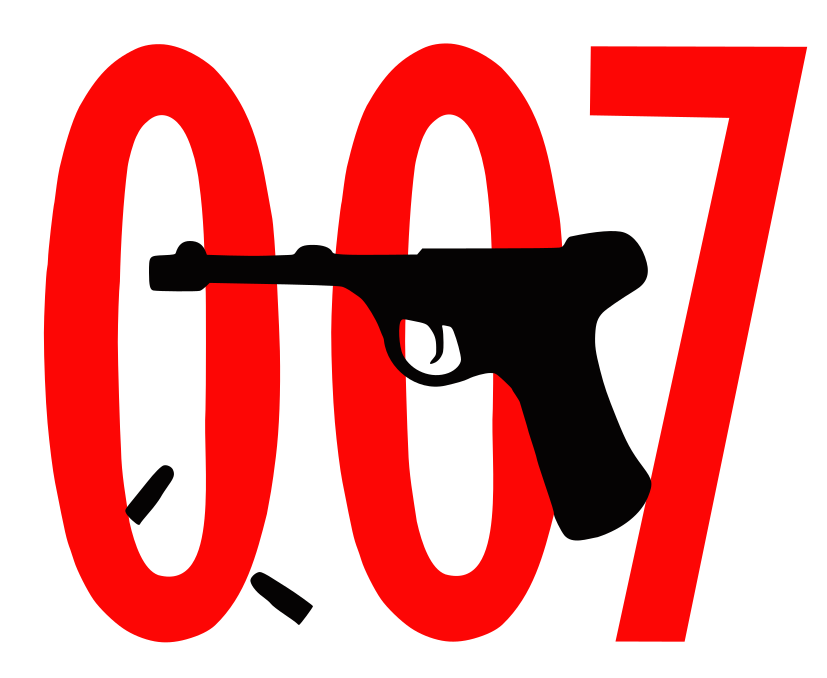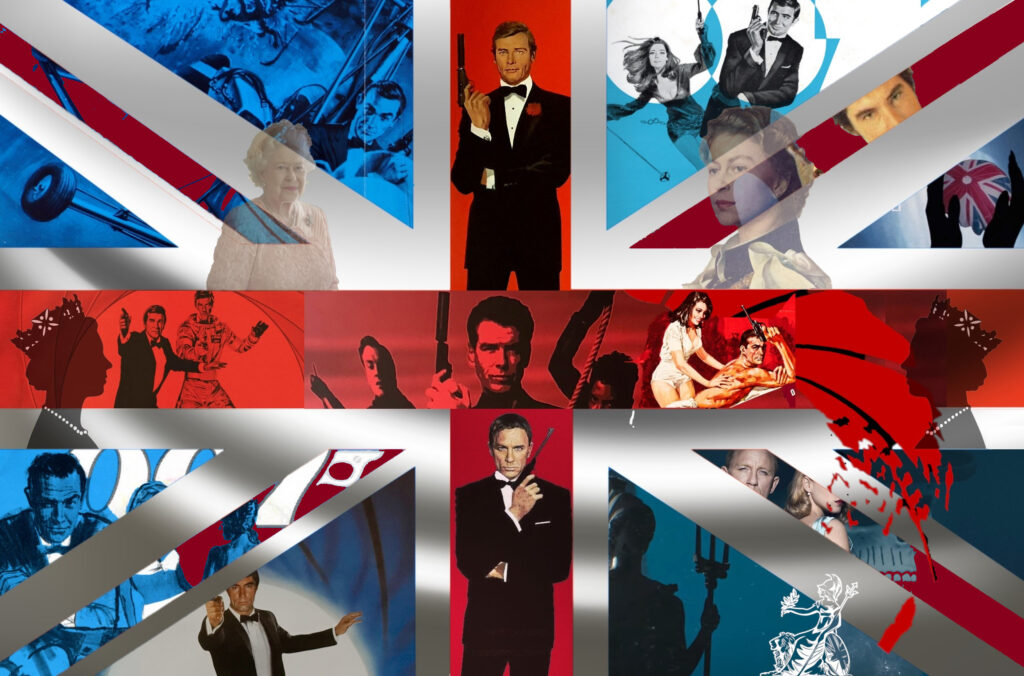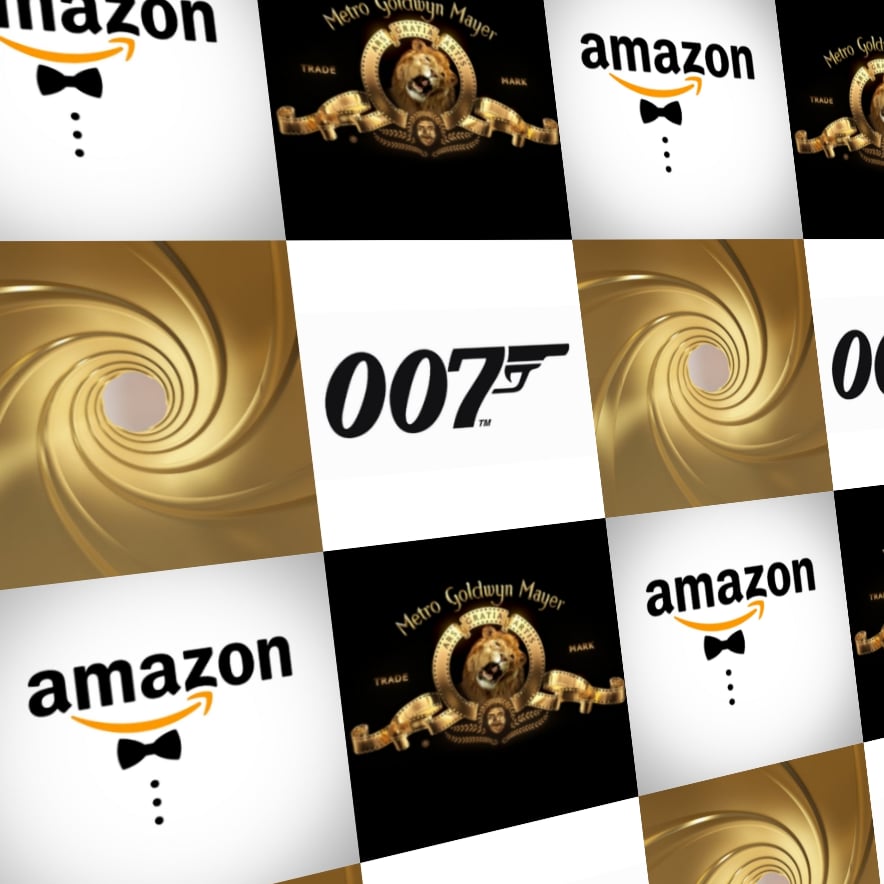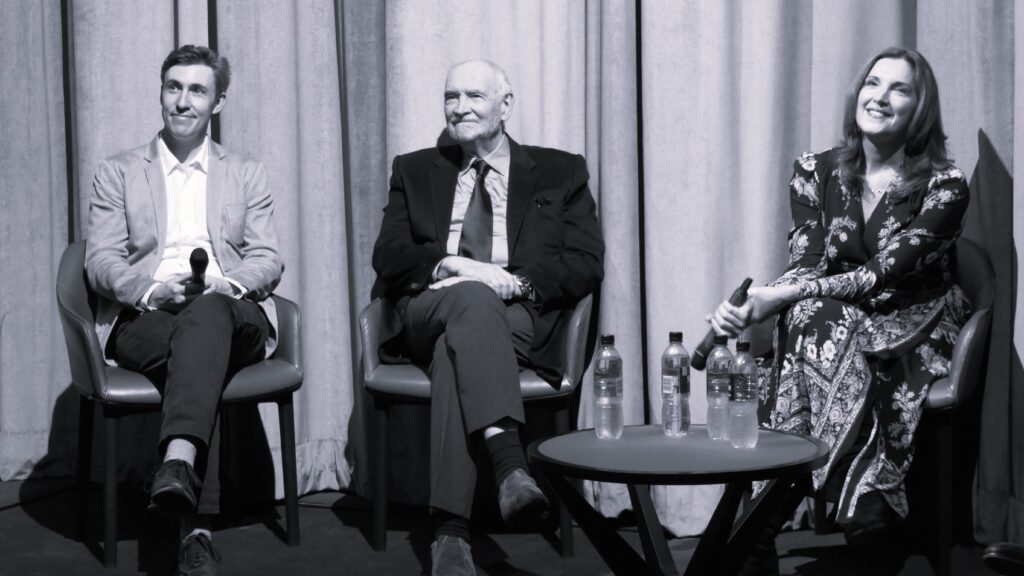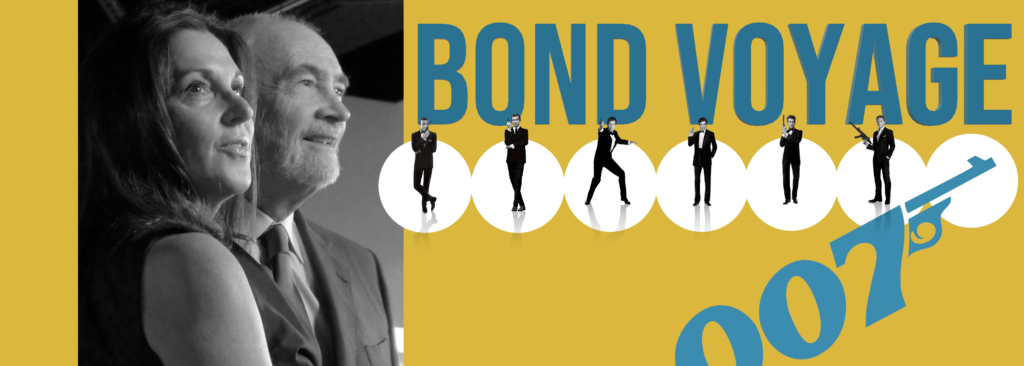
“My life has been dedicated to maintaining and building upon the extraordinary legacy that was handed to Michael and me by our father, producer Cubby Broccoli. I have had the honour of working closely with four of the tremendously talented actors who have played 007 and thousands of wonderful artists within the industry. With the conclusion of No Time to Die and Michael retiring from the films, I feel it is time to focus on my other projects.”
Barbara Broccoli, producer / February 20 2025
The permanence which has steered, guided and crafted Bond onscreen is going to evolve. The crosshairs for 007’s future and traditions are going to shift. The captaincy is changing. But it is less a baton passing moment and more of a new wheel.
On February 20th 2025, Bond producers Barbara Broccoli and Michael G. Wilson and Amazon MGM Studios officially announced they are forming a joint venture of co-ownership of the James Bond franchise – with the latter taking on creative duties as the world looks for the 007th 007. Broccoli and Wilson will retain intellectual property rights with Amazon MGM Studios. The biggest, most successful corner shop on the largest, ever shifting Hollywood lot is handing over the car, but not maybe the keys. The engine has changed. But the direction, fuel and road map are very much in place. The momentum for Bond’s future has shifted many gears over many years. Goldfingers crossed that this is no different. Yet, different it will be.
When it comes to cinema there are not many independent production companies that are still both companies and independent. There are very few production companies that maintain their family-run traits and control. There are even fewer movie franchises that reach sixty continual years and twenty-five films with maybe not the original captains, but the founding ship’s wheel. Yet, since 1961 London-based EON Productions did just that.
When film producers Albert R. Broccoli and Harry Saltzman formed an England-based, independent company on July 6th 1961 to be the production wing of their [then] Swiss based corporate entity, Danjaq Societe Associes, the resulting EON Productions became the engine HQ of James Bond 007 for over sixty years. A production company that has had many Midas touches over many eras of global entertainment, cultural change and technological advancements, EON was the Broccoli factory floor, administrative hub, office respite and working family enclave.
“With my 007 career spanning nearly 60 incredible years, I am stepping back from producing the James Bond films to focus on art and charitable projects. Therefore, Barbara and I agree, it is time for our trusted partner, Amazon MGM Studios, to lead James Bond into the future.”
Micheal G. Wilson, producer / February 20 2025
This bullet catching Bond scholar, author and fan has only known of the Broccoli Bond. On paper, this feels right now like the ravens have left the Tower of London… wearing Thunderball jet-packs. This is a seismic moment for Bond, cinema and British culture. And whilst some reaction might bleat that the Bond producers sold out (they didn’t… and they really did not need to either) or that this will all fail, let’s be mindful of context, reality, histories and futures here. Producer Barbara Broccoli alone has been producing Bond films for nearly fifty years. Her step-brother and producing partner Michael G. Wilson has been a key player, producer and writer at EON Productions for longer than that. Between them they have more than a century of experience of safeguarding, steering and creating James Bond 007. No one has bettered that in any other movie or pop-culture franchise. Nor will they.
Whilst we can speculate as to the reasons why – and ‘creative differences’ were arguably a factor – this was down to a series of factors, including Michael G. Wilson taking a deserved step backwards and Barbara Broccoli understandably not comfortable continuing without her sibling partner.
This was not an easy decision.
Talk of corporate takeovers, monolithic global owners, shareholder might and tech billionaires is indeed ever unnerving, complicated and daunting. And a million movie years from what sometimes seems like the analogue, old-school and sacrosanct prowess of a movie behemoth like Bond.
However, whilst the 007 franchise and its production mechanisms may be the very definition of continuity, the world of movie Bond has navigated a lot of corporate capers and business shade over the decades. Before it was bought into the Amazon Studios auspices, MGM’s history alone was ever complicated. It was really only Metro-Goldwyn-Mayer in name – with its ongoing history constantly buckling at forever wrapping proposed futures with back-catalogue gift paper in order to stump up enough cash to buy the next round – whilst ignoring the unpaid bar tab from last time. MGM’s golden era of studio production and distribution had already begun to hit the ropes in the late 1960s. Dorothy’s ruby slippers could never wish away television, a changing industry and a more younger-minded economy – and the devolution of the once granite-built studio system. The very semi-familiar names of Metro-Goldwyn-Mayer Inc, MGM/UA Entertainment, MGM Entertainment, MGM/UA Communications, MGM/UA Television Group, MGM Classics, MGM-Pathe Communications, MGM on Stage, MGM Business Group, MGM Holdings and more are all testament to the somewhat complicated 46 year history Bond had with MGM alone.
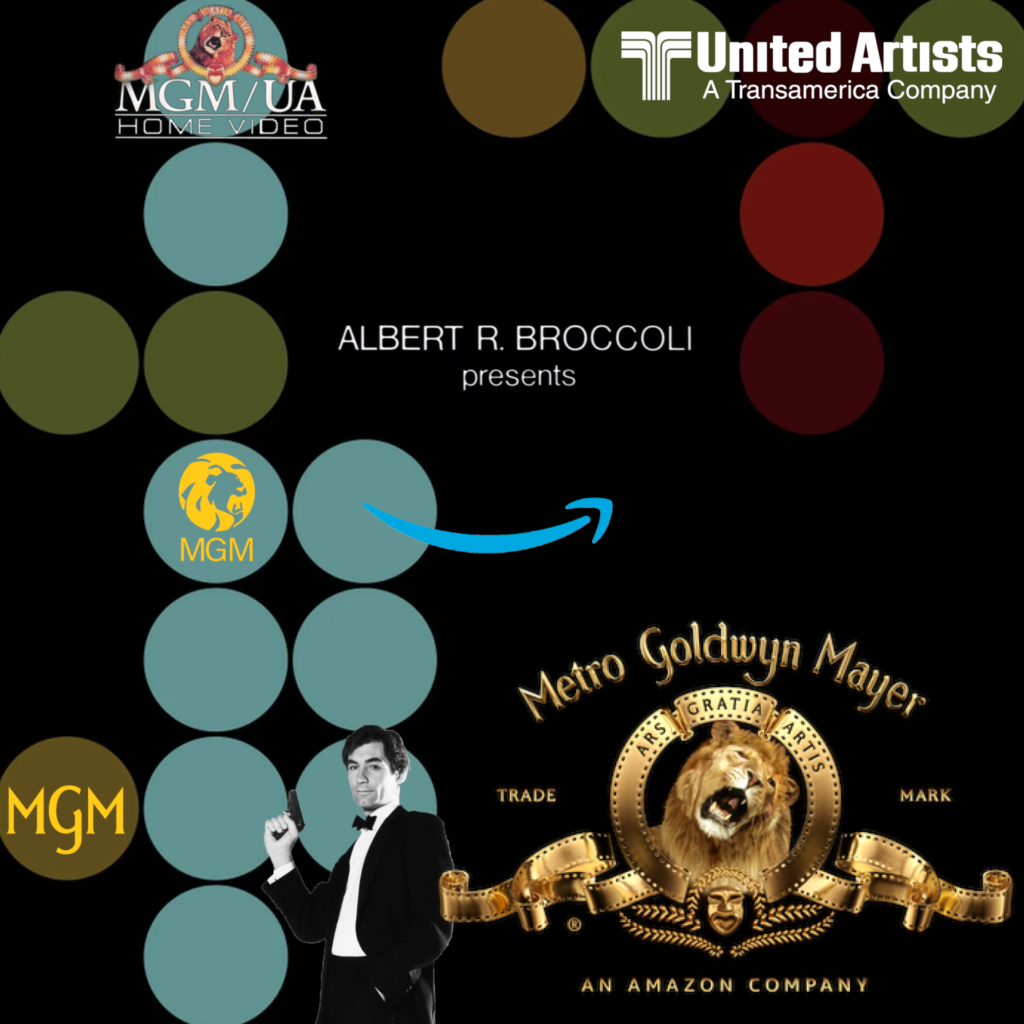
Contemporary movie financing pinned to re-heated buy-outs funding ancient debts shrouded in loans and restrictive clauses all then married into financier consortiums are ultimately movie deckchairs on the Titanic. And MGM navigated more icebergs than most. And tried moving the chairs. And replacing the violinists. If folk today are cautious about the ‘corporatization’ of Bond, his history – and that Broccoli sense of defence – has seen off and circumnavigated more corporate treachery than Amazon has air-fryers. Admittedly, the fair observation here is that that was always with at least one Broccoli hand on that wheel.
The original purchase and the purported additional fee negotiated with the Broccoli camp is now Amazon’s second biggest purchase after it famously paid $13.7B in 2017 to acquire the US food chain, Whole Foods. A larger wedge of that price tag Amazon has paid will be wearing a sixty-four-year-old tuxedo. Make no mistake. Amazon did not ever buy MGM to get its hands on Sherlock Gnomes 2. The commercial options alone to pop a newly coined ‘007’ logo and BOND 26 on every cardboard parcel hitting every doorstep, every Amazon delivery truck and every confirmation email on the planet is a potentially more tantalizing prospect for Bond’s optics than MGM’s X followers (or even Marvel Entertainment’s). Bond films have been delayed due to uncertainty surrounding MGM and its affiliates. That will not ultimately happen with Amazon. But it has to get this right.
This new Amazon moment represents finance for Bond. Amazon Studios could almost fund its own constellation of diamond-studded satellites and transform every volcano in the world into a glorious late 1960s villain’s lair if Jeff Bezos wanted to. One can easily snipe that these tech-billionaire platforms are almost like a Bond villain themselves. But I would not look too deeply at some of the ownership structures of any of our big global brands, suppliers, or commerce chains. Or assume Amazon is just some retail pariah…as you pop that new phone charging wire into your Amazon basket.
Amazon Studios bought the rights to The Lord of the Rings for $250m (curiously once held by MGM/UA) and were rumoured to have wizarded over $1b into the whole production pot for multi seasons. The first 2022 season alone was bankrolled by Amazon to the Hobbit tune of $465m. In March 2021, Amazon received a record twelve Academy Award nominations for its titles that year including One Night in Miami, Time, Borat Subsequent Moviefilm and Sound of Metal (which won two Oscars). In 2017 Amazon won two Academy Awards for Manchester by the Sea – including Best Actor. In 2022 Women Talking won the Best Adapted Screenplay Oscar. The next year – and having been nominated for five Academy Awards – American Fiction starring Jeffrey Wright (Casino Royale, No Time to Die) won the same gong. In 2025 Nickel Boys (2024) is nominated for Best Picture at the Academy Awards.
Amazon Studios is not based in some downtown financial district. It is sited at Culver Studios, in a building once owned by Cecil B. De Mille on a lot where Gone With The Wind was lensed. And it is staffed by movie people. Creed III was part of Amazon’s MGM buy-out. The theatrical booty for that ninth bout in the Rocky franchise was aided by Amazon’s websites, ad hoardings and even gym locker ad-spaces sharing trailers, posters and promos. Even Amazon’s Ring video doorbell systems featured Creed actor tie-ins and crossover PR. Creed III‘s opening haul for its theatrical release was then the highest of any Rocky movie since 1976. Christmas adventure Red One (2024) amassed 50 million global viewers in its first four days streaming on Amazon. And Amazon MGM Studios’ recent releases Saltburn (2023), Road House (2024) and Challengers (2024) became movie conversations. The commerce of our movies is no longer based on theatre lobby posters, Corgi DB5s and tie-in magazines.
Part of some of the Bond and movie fan reactions has been an unfounded fear of the unknown. And the un-subscribed. And a fair equivalence to the journey witnessed so far when other big franchises integrate into streaming worlds. There is much warrant to that. When the Lucasfilm properties were bought up by Disney in 2012, the fear was George Lucas has sold out and countless terrible sidebar TV strands would ensue. Yet, the Star Wars franchise did not soon initially stumble because of streaming or television shows or cartoon robots on Tik-Tok. It tripped because it released too many theatrical feature-length movies too fast. And amongst that yield was Gareth Edward’s Rogue One (2016) which is regarded as one of the best, franchise-reviving Star Wars films in the galaxy. Television was then its next canvas. And whilst The Acolyte (2024) was a fan-service misfire and cancelled after one season and Ahsoka sometimes feels all saber battle and no fight, The Mandolorian, Kenobi and Andor TV projects have elevated and elongated the Star Wars world. Whilst it trailed like one of the worst recesses of ringing-out-a-franchise-cloth, Skeleton Crew (2024) was ultimately a joyous, warm and simple adventure of a retro-minded show – that ignored the spin-off characters wider audiences have no investment in for a vital pace, fun and bounce. Lucasfilm and Disney then announce The Mandolorian and Grogu feature film for 2026.
And why stop at television projects potentially involving Bond and his world? The future of Amazon MGM’s Bond could involve animation, gaming, music, publishing, events, heritage destinations, a museum experience, re-releases, new cars, a whole new strand of documentaries, immersive experiences, art installations, and a new merchandise thinking.
What if Amazon MGM Studios has been nurturing its theatrical reach and infrastructures for a determined while, and could well announce in 2025 more details about its new international theatrical distribution plans for 2026 – which will no doubt include Bond…? Amazon MGM Studios’ Scott Stuber (Deliver Me from Nowhere) is heading up the repointed United Artists. Right now, that all feels like it is being designed for Commander Bond’s traditions of big event theatrical cinema. Maybe. As all the California streamers know, you are only as good as your sign-up numbers. But if not everyone has a subscription with every platform – and the numbers suggest they cannot – then it makes sense to release titles theatrically for wider global reach before a streaming window. Apart from the wait times dramatically shrinking, that is arguably not that different to the theatrical, rental, retail and broadcast schedules the Bond movies abided by internationally during the 1980s and 1990s. At 2025’s SXSW Film & TV Festival Courtenay Valenti and Jennifer Salke buoyed up how Amazon MGM Studios is ramping up its distribution and theatrical interests. The commitment to live cinema exhibition is definite. And that includes Michael B. Jordan’s 2026 Amazon MGM Studios remake of The Thomas Crown Affair which is very much aiming at a theatrical release.
There is fair concern over phrases like ‘content’ and ‘algorithms’. A December 2024 Wall Street Journal article alleged there was a resistance from the Broccoli camp to such buzzwords and streamer jargon. And definitely to any sidebar spin-offs. Yet, maybe – just maybe – algorithms are not that different to the box-office phone-calls from West Coast cinemas during the release of Thunderball? Or the tracked rentals of the 1980s Bond VHS releases that became a thing for MGM/UA? Or the initial corporate notion that the greenlit Goldeneye (1995) may not be a mega hit, but could at least shift VHS units of past Bond movies and bolster the back catalogue rather than usher in a new golden age of 007 onscreen as it soon very much did?
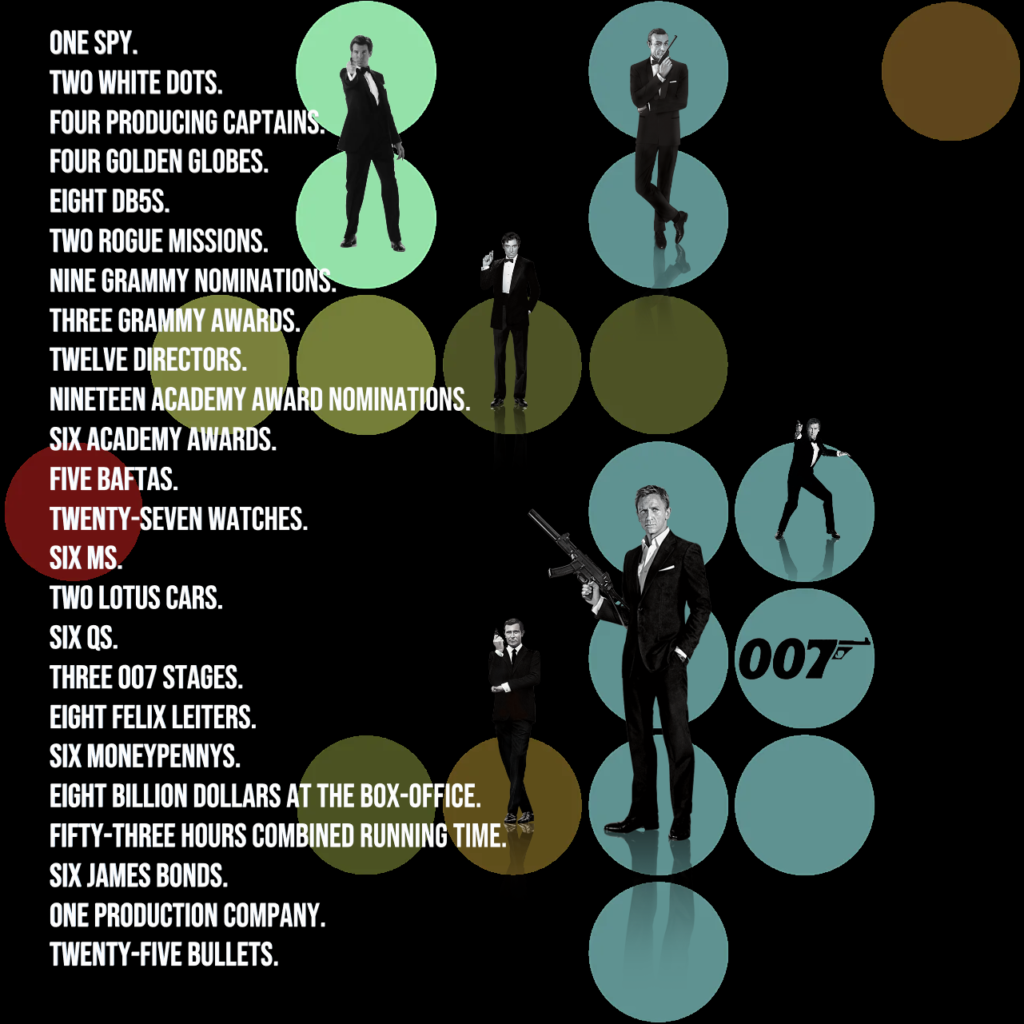
And as for the ‘American!’ panic rippling across some movie, press and fan discussions when it comes to Bond’s future, the concern has merit. Bond has a distinct, vital British DNA, spine and veneer. And that is not just the Britannic accoutrements, accents and brands punctuating the world of 007. It is the British crews, the British stunt teams, the British VFX houses, the British musicians, the British studios, the British technicians, the British designers, the British artists, the British costuming, the British carpenters, the British electricians, the British actors, the British directors, the British idioms and the British public’s support.
EON Productions’ casting director since the 1980s Debbie McWilliams announced her retirement in February 2025. She told ScreenDaily that when it comes to casting a new British 007, “If they mess with the Essence of Bond they risk alienating a huge audience. Choosing the actor to fill the role is a huge task and not one I would hand over to subscribers of X.”
However, Amazon has recently invested in Bray Studios and Shepperton – where it has leased nine soundstages already. And Shepperton is the sister site of 007’s spiritual home, Pinewood Studios. “With Bray as our creative home in the UK, we are committed to deepening our relationships with the UK creative community, which is rich with world-class storytellers and creative talent of all kinds,” said Mike Hopkins (Head of Prime Video and Amazon MGM Studios) in July 2024. He continued, “the acquisition of a studio with such a storied heritage not only empowers us to produce more film and television in the UK, but also unveils a wealth of opportunities in the local community with respect to jobs and skills training at all levels of the production process.”
Time will of course tell. And if any studios needed a Bond film right now is it is the impoverished British Home Counties studio belt that includes Pinewood, Bray and Shepperton. EON Productions and Bond’s commitment to British crews, eco-systems and employment is sizeable. Bond 26 would be naive to sail without those navigation charts, trade routes and compasses in its arsenal.
Yet, it is surely worth nothing that very British DNA, spine and veneer was crafted and nurtured by a Canadian and an American producer, an American screenwriter, two US-born producing siblings, various American-funded distributors, American-owned movie houses, and an American based rights company. EON Productions [temporarily] cast at least one American in the role (John Gavin, Diamonds are Forever) before Connery was persuaded back to – yep – bolster the American box-office. And they would have done the same again. And nearly did. When the initial Bond novels become a success and the onscreen possibilities of the character become fiscally apparent, it was author Ian Fleming himself who gladly jumped over the pond to take a bit of extra US pocket money to develop Bond spin-off stories and episodes for the likes of CBS Television. Fleming happily bought a car with his US TV earnings. He was not looking at Britain’s Granada or Grampian TV stations to secure Bond’s onscreen future. The very point of the cinematic Bond is a sense of global adventure and internationalism. Albert R. Broccoli and Harry Saltzman knew that when they did not cast the old school, totally English David Niven or James Mason for the role.
“We are grateful to the late Albert R. Broccoli and Harry Saltzman for bringing James Bond to movie theatres around the world, and to Michael G. Wilson and Barbara Broccoli for their unyielding dedication and their role in continuing the legacy of the franchise that is cherished by legions of fans worldwide. We are honoured to continue this treasured heritage, and look forward to ushering in the next phase of the legendary 007 for audiences around the world.”
Mike Hopkins
Head of Prime Video and Amazon MGM Studios / February 20 2025
One can, of course, rightly add here that it was a multi-national effort that forged and produced the Bond film template – and often with that British and Pinewood Studios genome on support duties. And that the very Broccoli/Saltzman and Broccoli/Wilson sense of creative safeguarding was the vital artistic and business constant. That is where the fear and terror lies right now amongst global film fans and franchise stalwarts.
Yet, at many moments in time and especially now in the age of the streamers, it is American money – and American streaming money – that has kept and continues to keep the British film studios such as Pinewood and Shepperton alive. Some commentators rightly fear that 007 could become a shareholders toy, a corporate plaything endorsing Amazon products onscreen and delivery truck stunts. Yet, no one said that about the Sony shareholders during the early Daniel Craig years. Or the TransAmerica fortunes during the late 1970s and 1980s.
Perhaps the biggest question should not be who could the next James Bond be – or even the next Bond director and writer – but who might the next James Bond producer be? Deadline has pondered the viability of Scott Stuber, as he is already steering the new United Artists. Another thought there is Courtney Valenti – Head of film, Streaming and Theatrical at Amazon and MGM. Valenti has old school movie DNA and was the producer on megahits Mad Max – Fury Road and Barbie. She was also liaising with the Bond camp during earlier creative talks and her father Jack was a Hollywood name alongside peer Cubby Broccoli. Another name is Julie Rapaport – Amazon’s Head of Cinema who has been tasked with making bigger movies better. And David Heyman is not only an intuitively British producer responsible for very British-centric and British hero fare such as Harry Potter, Paddington, The Secret Garden, and Wonka, but he co-produced Barbie with Valenti.
Amazon have naturally begun to allay fears on a moment that will not possibly be signed off by the relevant regulatory bodies until later in 2025. “We don’t have a plan yet on what the next theme is going to be – ,” Amazon’s CEO Andy Jassy told Deadline, “We haven’t – nobody’s written the story yet. But we will take great care. It’s an amazing franchise that we care a lot about and that we expect to develop over a long period of time.”
When it comes to James Bond, Barbara Broccoli and Michael G. Wilson are still Amazon MGM’s ‘co-owners’. Their name remains in a mix for this next potential era of 007. But this writer suggests that rights world on its own is not enough. And it is a world that new entertainment eras call a ‘universe’. That was never the Broccoli’s first position.
Twenty-five films was always such a round, final sounding tally. They have earned their downtime and will remain key creatives and benefactors on the British arts and international movie scene. They are also the Academy Awards most recent recipients of The Thalberg Award – the producers award and one of great merit and respect in Hollywood. Future projects have been circled – including a planned new version of Othello with Daniel Craig, a new musical and a once touted EON remake of Chitty Chitty Bang Bang with Amazon MGM. When it comes to that spy known as 007, a quote used at the end of 2021’s No Time to Die sums up this bullet catcher’s respects, hopes and wishes – ‘I shall not waste my days in trying to prolong them. I shall use my time.’
Barbara Broccoli, Michael G. Wilson and the entire EON family past and present used their time. For that reason and success alone, this bullet catcher’s Martini glass must remain half full.
Sources:
Deadline
Amazon
Amazon MGM Studios
ScreenDaily
Variety
